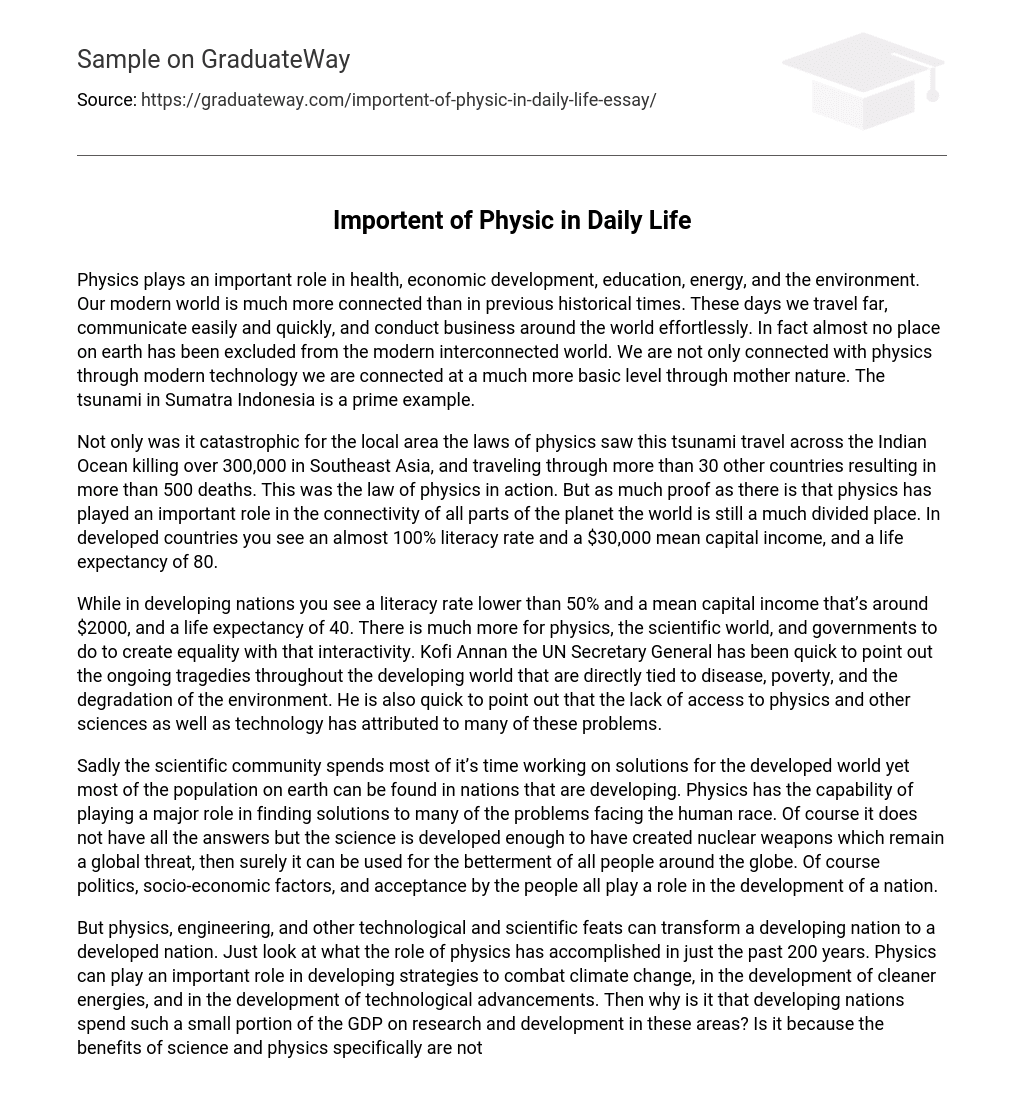Physics is crucial in various aspects including health, economic growth, education, energy, and the environment. The present world is more interconnected than ever before, with easy and rapid travel, communication, and global business operations. Virtually every corner of the earth has become a part of this interconnected modern world. Our connection to physics goes beyond just technology; we are also intimately connected through natural phenomena like the tsunami in Sumatra, Indonesia.
The local area was devastated by the tsunami, which also traveled across the Indian Ocean and caused over 300,000 deaths in Southeast Asia and more than 500 deaths in over 30 other countries. This tragic event demonstrated the profound impact of physics. Nevertheless, despite this evidence of physics connecting different parts of the world, global divisions persist. Developed countries boast almost perfect literacy rates, an average capital income of $30,000, and an average life expectancy of 80 years.
In developing nations, the literacy rate is less than 50% and the average capital income is approximately $2000, with a life expectancy of 40. There is still significant work needed from physics, the scientific community, and governments to address this inequality. UN Secretary General Kofi Annan has stressed that the ongoing tragedies in developing countries are linked to disease, poverty, and environmental degradation. He also emphasizes how limited access to physics, other sciences, and technology has contributed to many of these challenges.
Regrettably, the scientific community often prioritizes solutions for developed nations despite most of the global population residing in developing countries. Physics holds significant potential in addressing various challenges faced by humanity. While it may not possess all the solutions, this scientific discipline has advanced sufficiently to create nuclear weapons that pose a worldwide danger. Therefore, it should undoubtedly be utilized to improve the quality of life for individuals across the globe. Of course, factors such as politics, socio-economic circumstances, and public acceptance also influence a country’s advancement.
But physics, engineering, and other technological and scientific feats have the potential to elevate a developing nation to a developed one. The impact of physics in the past 200 years alone demonstrates this. Physics can contribute significantly to devising strategies to address climate change, fostering cleaner energy sources, and advancing technology. So why do developing nations allocate such a meager portion of their GDP to research and development in these domains? Is it because the benefits of science and physics, specifically, are not fully acknowledged in both industrialized and developing nations?
Is it that they refuse to acknowledge that our world desperately needs change in order to prevent self-destruction? Physics and technology must collaborate to address the need for new technologies that can reduce harm to our planet, devise strategies to empower developing nations with necessary tools for progress, find solutions for ongoing deadly diseases, and tackle the increasing demands we place on our resources before they run out. The significance of physics in our modern era surpasses any previous time in history.





